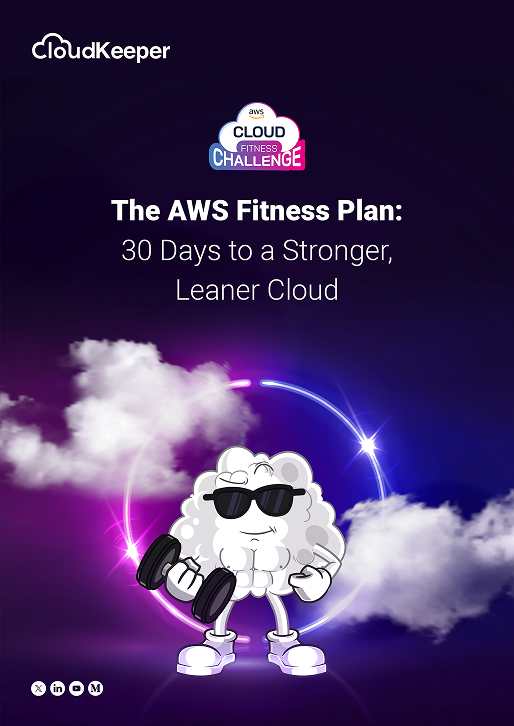Buckle up, cloud dwellers, because the AWS Reserved Instance (RI) landscape is taking a turn!
If you own Discounted RIs, you might have received an email from AWS which looked something like this -
“ AWS does not permit the resale of RIs obtained through a discount program (per AWS Service Terms 5.5).
We are extending a compliance period to give customers time to move their RI’s to come into compliance with AWS Service Terms.
During this time, the customer may list any RIs (even if the RIs received a discount) purchased before 1-Oct-2023, on the Amazon EC2 Reserved Instance Marketplace for sale through 15-Jan-2024.
However, the compliance window will close, and after 15-Jan-2024, customers may no longer have any listings and/or sales of RIs purchased via a discount program on Amazon EC2 Reserved Instance Marketplace.”
So What Does This Mean?
AWS has announced an RI Resale Ban and will not permit the resale of Reserved Instances obtained through a discount program, from Jan 15th, 2024. However, if you possess discounted RIs purchased before 1st Oct 2023, you can still list them on the AWS RI Marketplace till Jan 15th, 2024.
While this might initially be met with some skepticism or disappointment, it's crucial to assess the implications and understand how it may or may not affect your cloud cost optimization plans and cloud savings. To do this, let’s understand the concept of discounted RIs.
Understanding Discounted RIs: A Deep Dive
Before we delve into the "why" behind the ban, let's clarify what constitutes a "discounted RI." These are Standard RIs with an additional customer-specific discount applied above and beyond the standard discount rate.
Volume Discounts: Awarded for committing to a significant amount of RI usage upfront, these discounts incentivize bulk commitment and resource planning. Discounts begin at 5% of nominal AWS RI pricing and are proportional to the volume of commitments.
Private Pricing: Negotiated directly with AWS, these agreements offer tailor-made discounts based on specific usage patterns and commitments.
When a customer with an additional discount assigned to their account purchases an RI, it gets converted to a discounted RI and lives in their account. This RI could be transferred to other customers via the RI marketplace, until recently.
Why AWS Announced a Reselling Ban?
Even though the RI Resale ban might seem like a drastic change, this restriction already existed in Section 5.5 of the AWS Terms of Services for a while now. It is now being strictly enforced for the following reasons:
Abuse of Discounts: The resale market created an avenue for discounted RIs to fall into the hands of users who wouldn't have qualified for them directly. This potentially skewed resource allocation undermined the intended purpose of discounts and even created unfair advantages for some users.
RI Contagion: Imagine a domino effect where a single discounted RI gets resold multiple times, each time diluting the original commitment and value. This "contagion" could destabilize AWS RI pricing and resource availability, making it harder for AWS to predict demand and plan capacity accurately, forcing it to announce the reselling ban.
Exploiting EDP Commitments: Some customers were using volume discounts to acquire RIs and then reselling them to offset their AWS EDP Commitment Shortfall Obligation. This essentially allowed them to escape the consequences of underutilizing resources, impacting the fairness of the AWS EDP discounts model.
These concerns have been a wake-up call for AWS to curb unfair practices in RI transactions. That’s why they began implementing RI transfer limits and have now introduced a complete RI Resale ban on the transfer of Discounted RIs.
The Future of Reserved Instances
While the landscape is shifting for Discounted RIs, users of Standard RIs and Convertible RIs stand unaffected. This new AWS ban does not impact their plans to purchase them directly from AWS or to trade the Standard RIs on the AWS Reserved Instance Marketplace. This might cause an increased emphasis on strategic RI planning and utilization, that helps optimize AWS Reserved Instances portfolios and identify alternative savings opportunities.
Impact on CloudKeeper and our Customers
While multiple FinOps vendors had their entire business models built on top of Standard Reservation arbitrage, CloudKeeper customers do not have to deal with the complexity of managing Reservation / AWS Savings Plan commitments and they continue to enjoy the savings with ZERO impact from this RI resale ban.
How, you may ask.
CloudKeeper has always helped its customers escape the complexities of long-term reservations by offering On-demand instances at RI-like pricing, at no upfront costs, no lock-ins, and zero commitments. We go one step further by providing a comprehensive set of FinOps solutions with instant and guaranteed savings of up to 25%, resource-level cost insights, and FinOps consulting services by certified cloud experts.
This diverse range of savings strategies and our dedication to transparent FinOps practices sets us apart and ensures rock-solid performance for our valued partners.
The Takeaway: Adapting to Change with Smarter Cloud Investments
While this reselling announcement may seem unexpected, it's a move toward more transparent and consistent AWS RI pricing policies. By adapting your AWS Reserved Instance strategy and optimizing your AWS infrastructure with robust cloud cost management practices, you can still achieve significant ROI on your cloud investments. By working with a cloud cost optimization partner like CloudKeeper, you could easily sail through these troubled waters by streamlining your entire AWS Infrastructure.
If you need any assistance or clarifications regarding these this AWS ban, feel free to schedule a call or mail us at hello@cloudkeeper.com.
(Full disclosure: This article represents CloudKeeper's analysis and opinions regarding new AWS regulations. It does not incorporate official Amazon statements or claim to speak on their behalf.)
